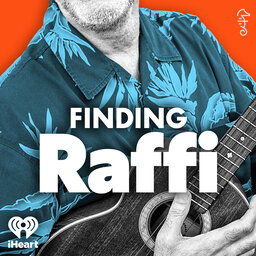Impressions Of Armenia
What do you owe your parents? What do you owe your country? What do you owe yourself?
Guests in this episode:
- Dr. Shushan Karapetian, University of Southern California’s Institute of Armenian Studies
- Chris Bohjalian, best-selling author
- John Lacey, steel guitarist
From Fatherly and iHeartRadio, in partnership with Rococo Punch.
Learn more about your ad-choices at https://www.iheartpodcastnetwork.com
 Finding Raffi
Finding Raffi


